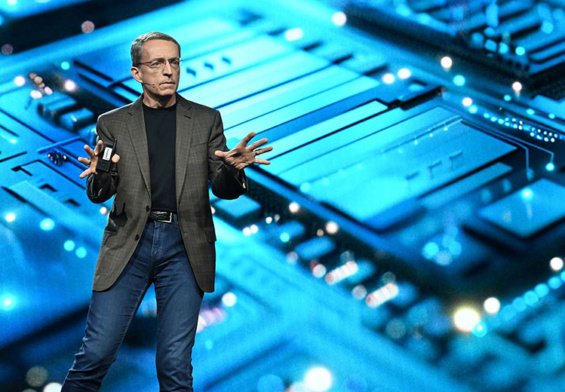Intel Vision hosted a significant event last week, shedding light on the strategic execution and leadership in the US tech industry. The event showcased Intel’s efforts to remain at the forefront of technology, reminiscent of the Andy Grove days. However, one key element seems to be missing from Intel’s current strategy – a Dennis Carter. The absence of a key figure like Dennis Carter, known for his strategic insights and decision-making abilities, could be hindering Intel’s full potential in the rapidly evolving tech landscape.
On the other hand, Dell Technologies, under the leadership of Michael Dell, seems to be making a strong comeback. After concerns about Dell’s execution issues, it is refreshing to see Michael Dell stepping up and driving the company forward. With a well-planned and executed presence at Intel Vision, Dell showcased its renewed focus and commitment to innovation. Having a CEO of Michael Dell’s caliber leading the charge is a significant advantage for the company.
However, despite the positive momentum from Intel and Dell, there are looming challenges that the tech industry needs to address. Three key AI-related problems threaten the stability and future of the sector:
1. **Legacy Technology Integration**: The industry is still grappling with integrating AI into existing platforms like smartphones and PCs, rather than developing purpose-built AI technologies. This approach poses a risk of collapse for established players in the industry, disrupting the entire ecosystem.
2. **Underfunded Marketing**: The underfunding of marketing efforts across the tech industry, particularly in the AI space, could lead to missed opportunities and failed product launches. Learning from past mistakes, companies must allocate adequate resources to effectively market their AI products and solutions.
3. **Ethical Concerns**: The proliferation of AI technologies has raised ethical concerns, with some individuals creating potentially hazardous AI applications. From robotic dogs with flame throwers to hostile AIs, there is a need for responsible development and deployment of AI to avoid catastrophic outcomes.
As the industry navigates these challenges, the future of technology hinges on strategic decision-making and responsible innovation. Companies must strike a balance between technological advancement and ethical considerations to ensure a sustainable and secure tech ecosystem.
Amidst these industry-wide concerns, a glimmer of innovation shines through with the introduction of the new Dell XPS 13 laptop featuring the latest Intel Core Ultra processor. This sleek and high-performing laptop exemplifies the future-proofing efforts in the PC market, offering users a premium experience at a reasonable price point. With innovative features like dynamic function keys and impressive battery life, the Dell XPS 13 stands out as a standout product in the ever-evolving tech landscape.
In conclusion, as Intel and Dell forge ahead in the competitive tech industry, addressing the AI-related challenges highlighted is paramount for sustained growth and innovation. With transformative technologies like AI shaping the future, strategic leadership, ethical considerations, and product innovation will define the success of companies in the digital age. The new Dell XPS 13 serves as a testament to the industry’s commitment to pushing boundaries and delivering cutting-edge solutions to consumers worldwide.







